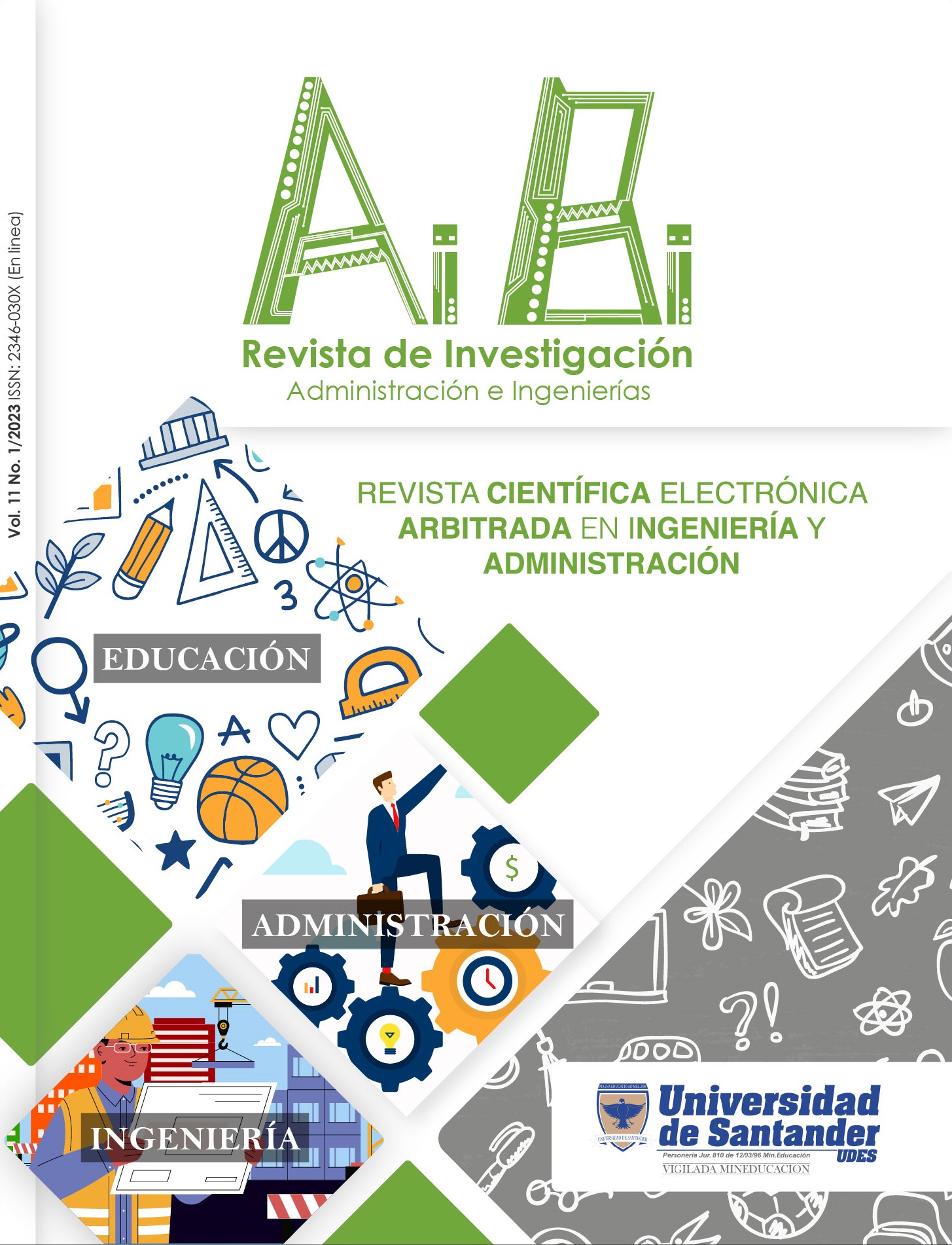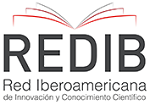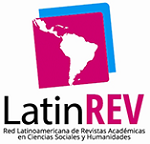Ethnomethodological analysis in the humanities and social sciences in Ecuadorian education
El analisis etnometodológico
DOI:
https://doi.org/10.15649/2346030X.3078Keywords:
humanities, qualitative paradigm, ethnomethodology, sciences, ecuadorAbstract
The analytical ethnomethodological approach allows for obtaining relevant information through an in-depth unstructured interview and the analysis of interviewees' data in a qualitative research approach. Moreover, it helps to delineate the different ways in which people conceptualise attitudes and behaviour in a delimited geographical environment of the object of study. Ethnomethodology facilitates the interpretation and perception of a given phenomenon that appears to be intertwined with several others when researched. The objective of this article was to conceptualise the analytical ethnomethodological approach applied at the Universidad Tecnica de Manabi UTM when developing studies under the qualitative approach in areas related to humanistic and social sciences. The study was established under the qualitative paradigm. The design was ethnographic. It was carried out at UTM with the participation of 15 students from the Faculty of Social Work and 5 teachers from the Faculty of Humanistic and Social Sciences. For the collection of information, a semi-structured interview and a bibliographical documentary review were used. For the analysis of the information obtained, the triangulation of the results was applied. The findings revealed that, due to the non-explicit nature of ethnomethodology in the Ecuadorian curriculum policy, the phenomenon of qualitative analysis was conceived, conceptualised and perceived differently by teachers according to their academic and professional background
References
Creswell, J. (2013). Diseño de investigación: enfoques cualitativos, cuantitativos y de métodos mixtos. Thousand Oaks CA: Salvia.
Marton, F. (1988). Fenomenografía: Un enfoque de investigación para investigar diferentes comprensiones de la realidad. En R. R. Sherman y R. B. Webb (Eds.), Qualitative.
Marton, F. y Booth, S. (2013). Aprendizaje y concienciación. Nueva York: Routledge.
Marton, F. y Booth, S. A. (1997). Aprendizaje y concienciación. Mahwah NJ: Lawrence Erlbaum.
Mohd, R. H., Selamat, M. N., Aziz, S. F. A., & Omar, N. H., “Ethnomethodological Research on Proactive Safety Behavior of The Young Workers”. International Journal of Academic Research in Accounting Finance and Management Sciences, vol 11, no 3, pp. 129–144, 2021.
Au-Yeung, T. S. H., & Fitzgerald, R, “Time structures in ethnomethodological and conversation analysis studies of practical activity”. The Sociological Review, vol 71, no 1, pp. 221–242, 2023. https://doi.org/10.1177/00380261221103018.
E. Laurier, H. Krämer, D. Gerst, and R. Salomon, “The " Studies in Ethnomethodology" Are a Way of Understanding and Handling Empirical Materials and Thoughts. Eric Laurier in Conversation With Hannes Krämer, Dominik Gerst & René Salomon”, FQS, vol. 20, no. 2, May 2019.
Garfnkel H, (2022). Harold Garfinkel: studies of work in the sciences. Routledge.
Ceruzzi, Paul E., “Calvin Mooers, Zatocoding, and Early Research on Information dRetrieval,” in T. Haigh (ed.) Exploring the Early Digital History of Computing. Springer International Publishing. https://resolver.ebscohost.com/Redirect/PRL?
Garfnkel, Harold, “Ethnomethodological Misreading of Aron Gurwitsch on the Phenomenal Field.” Edited seminar transcript, Sociology, Human Studies, vol 44, no 1, pp. 19–42, 2021.
Lynch, Michael, “Garfnkel, Sacks and Formal Structures: Collaborative Origins, Divergences and the Vexed Unity of Ethnomethodology and Conversation Analysis,” Human Studies vol 42, no 2. Pp. 183–198, 2019.
Garfnkel, Harold (2019b) Parsons’ Primer, edited by Anne Rawls, with Introduction by Anne Rawls and Jason Turowetz. Dordrecht: Springer.
Garfnkel, Harold, “Ethnomethodological Misreading of Aron Gurwitsch on the Phenomenal Field,” Human Studies vol, 44, no 1. pp. 19–42, 2021.
Allen-Collinson, J., McNarry, G. y Evans, A, “Sensorialidad, interacción social y “hacer sentir” en etnografías físico-culturales”. Revista de Etnografía Contemporánea, vol 50, no 5, pp. 599–621, 2021. https://doi.org/10.1177/08912416211014266.
Bolam, C. (2019). Performance and practice in higher education: an ethnomethodological study of everyday academic work. University of Bedfordshire.
Yu-cheng, L. “Making the world observable and accountable: An ethnomethodological inquiry into the distinction between illustration and exhaustion”. Humanit Soc Sci Commun vol 9, no 296, 2022. https://doi.org/10.1057/s41599-022-01314-1.
Marton, F., Tsui, A. B., Chik, P. P., Ko, P. Y., & Lo, M. L. (2004). El discurso en el aula y el espacio de aprendizaje. Nueva York: Routledge.
Lehn, D. “Phenomenology‐Based Ethnography for Management Studies and Organizational Analysis”. British Journal of Management, vol 30, no 1, p.p 188-202, 2019. https://doi.org/10.1111/1467-8551.12309.
Hammersley, M. (2018). El radicalismo de la etnometodología: una evaluación de fuentes y principios. Prensa de la Universidad de Manchester. Proyecto MUSE muse.jhu.edu/book/67320.
Hernández, R.; Fernández, C.; y Baptista, P. (2017). Metodología de la Investigación. McGraw Hill Interamericana Editores, S.A. de C.V.
Hernández, R.; y Mendoza, Ch. (2018). Metodología de la investigación: las rutas cuantitativa, cualitativa y mixta. McGraw Hill Interamericana Editores, S.A. de C.V.
Hennink, M., Hutter, I. y Bailey, A. (2020). Métodos de investigación cualitativa, SAGE.
Creswell, J, y Creswell, D. (2018). Diseño de investigación: enfoques de métodos cualitativos, cuantitativos y mixtos, 5.ª edición. SAGE Publications.
Creswell, J y Baez, J. (2021). 30 habilidades esenciales para el investigador cualitativo. SAGE.
Creswell, J y Guetterman, T. (2019). Investigación educativa: planificación, realización y evaluación de investigaciones cuantitativas y cualitativas. Pearson.
Toliver, S. (2021). Recuperando la narración negra en la investigación cualitativa: el trabajo narrativo oscurecido. Routledge.
Janice D. Aurini, Melanie Heath y Stephanie Howells (2022). El Cómo de la Investigación Cualitativa. Sage Publishing.
Navarro, M., Casado, F., Mendoza, J., Cejas, M. and Mendoza. D., “Attitudinal Analysis of Women’s Political Participation in Ecuador: Social and Legal Perspectives”. Journal of Educational and Social Research, vol 12, no 6, p.p 1-12, 2022. https://doi.org/10.36941/jesr-2022-0141.
Downloads
Published
How to Cite
Downloads
Issue
Section
License
The journal offers open access under a Creative Commons Attibution License

This work is under license Creative Commons Attribution (CC BY 4.0).









